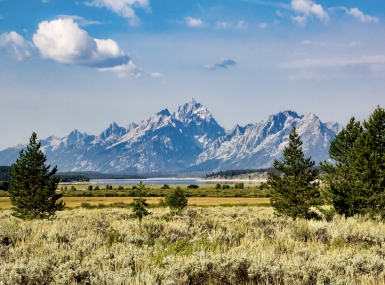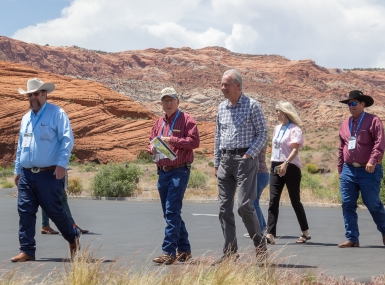Payments in Lieu of Taxes Resource Hub
Sixty-two percent of counties have federal lands within their boundaries

Jump to Section
Counties with public lands in their jurisdictions often provide critical services on those lands including law enforcement, search and rescue, fire management, solid waste disposal, and emergency medical services. Today, the U.S. Department of the Interior makes PILT payments to over 1,850 counties in 49 states, the District of Columbia, Guam, Puerto Rico and the U.S. Virgin Islands.
The federal government owns roughly 635-640 million acres, or 28 percent, of land in the U.S. Approximately 62 percent of counties have federal public land within their jurisdictions. As federal land is not taxable by local governments, PILT provides payments to counties to offset losses in property tax revenues and also to reimburse counties for the critical services they provide on that land.
Even though they are not able to collect property taxes on federal land, county governments must still provide essential services for their residents and those who visit these public lands each year. Such services include road and bridge maintenance, law enforcement, search and rescue, emergency medical, fire protection, solid waste disposal and environmental compliance.
Public lands counties by the numbers
610 Million
Work with federal partners to maintain and provide services for 610 million acres of land, or just over a quarter (28 percent) of all land acres in the country
62%
Are spread around the country; nearly two-thirds (62 percent) of counties have federally-owned lands within our jurisdictions
$578 Million
Manage federal funding, including more than $578 million in federal Payment in Lieu of Taxes (PILT) funds and $271 million from the Secure Rural Schools (SRS) funding
Featured Resources

Primer for Counties: Payments in Lieu of Taxes (PILT) and Secure Rural Schools (SRS) Programs
The second report of the National Center for Public Lands Counties (NCPLC) provides foundational PILT and SRS program information to public lands counties including brief histories of both programs, detailed “mechanics” of payment administration and county-level issues, and policy considerations for both programs.

National Center for Public Lands Counties
The NACo Center for Public Lands Counties is dedicated to advancing the policy and practice study of America’s public lands counties. Our mission is to deepen the understanding and address the unique challenges faced by counties containing federal lands through strategic research and collaboration.


